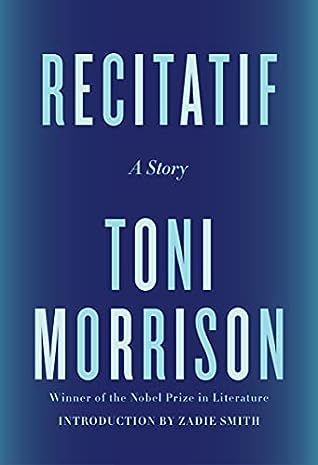More on this book
Community
Kindle Notes & Highlights
When she called “Recitatif” an “experiment” she meant it. The subject of the experiment is the reader.
Bigger than any man and on her chest was the biggest cross I’d ever seen.
Roberta’s mother refuses to shake Twyla’s mother’s hand.
Cries out “Twyla, baby!” when she spots her in the chapel
Children are curious about justice.
Geography, in America, is fundamental to racial codes,
Easy, I thought. Everything is so easy for them. They think they own the world.
Everything hangs on that word “they.”
They used to like doing each other’s hair, as kids.
hated your hands in my hair)
Why should I trust this person? What are they trying to take from me? My culture? My community? My schools? My neighborhood? My life?
The long, bloody, tangled encounter between the European peoples and the African continent is our history. Our shared history.
admit I do begin to feel resentment—actually, something closer to fury—when I realize that merely speaking such facts aloud is so discomfiting to some that they’d rather deny the facts themselves. For the sake of peaceful relations. To better forget about it.
We know their exploration of the question will be painful, messy, and very likely never perfectly settled.
Difficult to “move on” from any site of suffering if that suffering goes unacknowledged and undescribed.
We must be heard.
And all we have to do is hear about that? How can we resent it?[*6]
It has been fascinating to watch the recent panicked response to the interrogation of whiteness,
If race is a construct, what will happen to blackness? Can the categories of black music and black literature survive? What would the phrase “black joy” signify?
My choices of language (speakerly, aural, colloquial), my reliance for full comprehension on codes embedded in black culture,
attempts to transfigure the complexity and wealth of Black American culture into a language worthy of the culture.[*8]
Visibility and privacy, communication and silence, intimacy and encounter are all expressed here.
shared histories inevitably produce: culture, community, identity. What belongs exclusively to them is their subjective experience of these same categories in which they have lived. Some of these experiences will have been nourishing, joyful, and beautiful; many others prejudicial, exploitative, and punitive. No one can take a person’s subjective experiences from them. No one should try.
human life. But she also lovingly demonstrates how much meaning we were able to find—and continue to find—in our beloved categories.
peculiar way we walk or dance or paint or write—these things are dear to us. Especially if denigrated by others, we will tend to hold them close. We feel they define us. And this form of self-regard, for Morrison, was the road back to the human—the insistence that you are somebody although the structures you have lived within have categorized you as “nobody.”
legs like parentheses.
Easy, I thought. Everything is so easy for them. They think they own the world.
It was just that I wanted to do it so bad that day—wanting to is doing it.”


